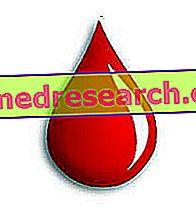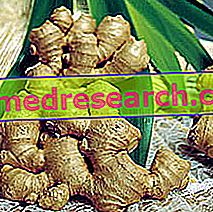hematospermia
In the medical field, the term "hematospermia" (or emospermia) indicates a pseudo-pathological condition characterized by the presence of blood in the sperm, which occurred during or immediately after ejaculation, often painful.

Although representing a highly alarming clinical sign for the affected patient, in the vast majority of cases, the blood in the sperm, clinically, does not raise particular concerns: hematospermia is in fact considered a benign and self-limited condition. In any case, the opinion of the doctor is fundamental, in order to exclude any hidden pathologies and clear up any doubts.
Incidence
Many are the patients who, at least once in their lifetime, have observed traces of blood in the sperm: more often than not, the target of the apparently pathological condition is young people, especially those with a sexually active and promiscuous life. On the other hand, other sources report that even prolonged sexual abstinence could represent a risk factor for hematospermia.
Only rarely, adults and the elderly complain of episodes of hematospermia linked to an intensity and a certain frequency of sexual intercourse: in similar situations, often, the cause of the blood in the sperm resides in more serious problems, which will be examined in the next paragraph.
Clearly, the occasional nature of the condition does not have to worry overly; when instead hematospermia becomes a frequent phenomenon, medical examination is absolutely inevitable.
It is observed that hematospermia is a recurrent situation in about 2% of urological problems.
Non-pathological causes
It is important to distinguish two conditions directly related to hematospermia:
- Blood in the sperm as a non-pathological condition
We have analyzed that, more often than not, the blood in the sperm is not linked to pathological conditions, particularly when it affects young people with a particularly active sex life or, vice versa, in the case of prolonged sexual abstinence. In similar situations, hematospermia could represent the simple indicator of a slight malfunction of the male genital apparatus. This is a condition that can be solved autonomously: if the patient is clinically healthy, he observes more phenomena of hematospermia, the doctor usually prescribes a targeted pharmacological treatment.
Although it is a non-pathological phenomenon, medical advice is always binding, even when it is an occasional event.
Pathological causes
- Blood in the sperm as a warning of more serious diseases
The presence of blood in the sperm as a pathological condition must be traced, above all, to urethritis (non-specific phlogosis of the urethra), prostatitis (inflammation of the prostate) or, again, to vesicle-deferentitis (inflammation of the seminal vesicles). Less frequently, hematospermia occurs in conjunction with specific infections (in particular caused by cytomegalovirus, platelminti of the genus Schistosoma and Chlamydia or Trichomonas, sexually transmitted), hemorrhagic cystitis and blood diseases (coagulopathies). Some cases of blood in the sperm have been observed in patients who have recently undergone prostatic biopsy or invasive maneuvers involving the genitourinary tract in general.
In other subjects, hematospermia is caused by calculosis in the kidney, in the bladder and in the ureter: in similar situations, besides presenting blood in the sperm, the patient often complains of very strong pain and colic.
In rare cases, the blood in the sperm is a lit indicator of prostate cancer.
Some cases of hematospermia have been observed in patients suffering from hypertension, amyloidosis and liver disease.
Finally, some sources report cases of blood in the sperm as a side effect of the administration of pharmacological specialties, such as anticoagulants / antiplatelet agents.



